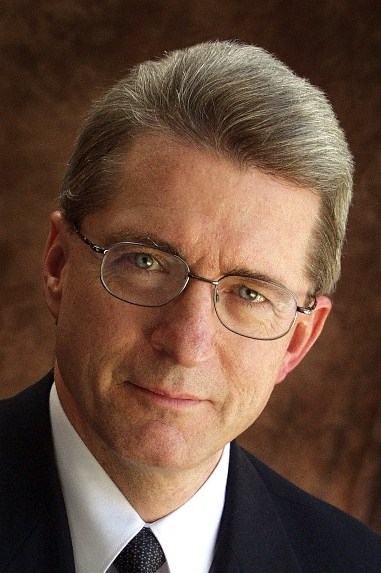Canadian charities working in the United States or in conjunction with US charities in conflict zones will need to keep abreast of recent legislative and judicial developments in the US, with the extension of controversial provisions of the Patriot Act and the US Supreme Court's decision on the material support of terrorism laws.

While the
Holder decision, discussed below, is a decision of the US Supreme Court, it may still hold judicial sway in Canadian regulatory and judicial proceedings, including those carried out by
Canada Revenue Agency, given the paucity of judicial interpretation of anti-terror laws.
Extension of Patriot Act President Barack Obama signed a four-year extension of three controversial provisions of the
Uniting and Strengthening America by Providing Appropriate Tools Required to Intercept and Obstruct Terrorism Act of 2001 (USA PATRIOT Act) (the "Patriot Act") into law on May 26, 2011. The three key provisions include (1) roving wiretaps, (2) searches of business records, and (3) conducting surveillance of "lone wolves" - individuals suspected of terrorist-related activities not linked to terrorist groups.
The extension of the three controversial provisions without the introduction of any new civil liberty protections and the continued classified nature of the official government interpretation of the Patriot Act will have far-reaching implications for both US and counterpart Canadian charities working in conflict zones.
 The Holder decision
The Holder decision In June 2010, a 6-3 majority US Supreme Court decision in
Holder v. Humanitarian Law Project (the "Holder decision") held that the material support of terrorism statute did not violate the US Constitution.
The Holder decision involved two US citizens and six domestic organizations, including the
Humanitarian Law Project ("HLP"), a human rights organization with consultative status to the United Nations, and focused on the constitutionality of US Code Section 2339B.
This law makes it a federal crime - punishable by up to 15 years in prison - to "knowingly provid[e] material support or resources to a foreign terrorist organization." The term "material support or resources" includes providing any property, service, lodging, training, expert advice or assistance, safehouses, false documentation or identification, communications equipment, facilities, weapons, lethal substances, explosives, personnel and transportation, to a "foreign terrorist organization" ("FTO").
Although not at issue in the Holder decision, §2339B also provides extraterritorial jurisdiction for this offence, extending the long arm of the law to a number of situations, including circumstances where the "offender" is "brought into" or "found" in the United States.
At issue in the Holder decision was HLP's wish to provide support for the humanitarian and political activities of two organizations that have been designated as FTOs by the US State and Treasury Departments. HLP's proposed support was to be in the form of teaching and advocating the use of international law and other non-violent means to reduce conflict and advance human rights to the FTOs.
HLP challenged §2339B's prohibition on providing four types of material support: training, expert advice or assistance, service and personnel, asserting violations of the Fifth Amendment's Due Process Clause on the ground that the statutory terms were impermissibly vague, and violations of their First Amendment rights to freedom of speech and association.
The majority decision Chief Justice Roberts, writing for the Court, upheld the material support provision, concluding that it "provide[s] a person of ordinary intelligence fair notice of what is prohibited," and did not ban "pure political speech."
Writing that "everyone agrees that the Government's interest in combating terrorism is an urgent objective of the highest order," Chief Justice Roberts concluded that "we are convinced that Congress was justified in rejecting [the] view" that "ostensibly peaceful aid would have no harmful effects."
As such, Chief Justice Roberts accepted that "material support" is a valuable resource and frees up other resources within the organization that may be put to violent ends and helps lend legitimacy to FTOs, saying legitimacy "makes it easier for those groups to persist, to recruit members, and to raise funds - all of which facilitate more terrorist attacks."
The Court rejected HLP's contention that the Court should interpret the material support statute, when applied to speech, to require proof that a defendant intended to further an FTO's illegal activities. This interpretation was found to be inconsistent with the text of the statute, in which the mental state required for a violation is knowledge about the organization's connection to terrorism, not specifically intent to further the organization's terrorist activities.
The minority decision Justice Breyer, writing for the dissent, agreed with the Court as to the issue of the statute's vagueness, but did not agree with the conclusion that "the Constitution permits the Government to prosecute the plaintiffs criminally for engaging in coordinated teaching and advocacy furthering the designated organizations' lawful political objectives."
This speech and association for political purposes sought by HLP is the kind of activity to which the First Amendment ordinarily offers its strongest protection. Justice Breyer confirmed the principle that the right to associate does not lose all constitutional protection merely because some members of the group may have participated in conduct or advocated doctrine that itself is not protected, and argued that "not even the ‘serious and deadly problem' of international terrorism can require automatic forfeiture of First Amendment rights."
Justice Breyer went on to suggest that "at the very least" the Court should "measure the validity of the means adopted by Congress against both the goal it has sought to achieve and the specific prohibitions of the First Amendment."
In order to avoid the constitutional problem, Justice Breyer suggested that he would read the statute as "criminalizing First-Amendment-protected pure speech and association only when the defendant knows or intends that those activities will assist the organization's unlawful terrorist actions," thereby introducing a
mens rea component to the statute.
Concluding comments Therefore, the Holder decision highlights a number of troubling issues with respect to the ability of charities to carry out programs in conflict zones that are intended to improve the lives of vulnerable persons, as lawful activities can be deemed unlawful simply in reference to the persons participating in the activity, namely alleged terrorists or terrorist sympathizers.
Charities also need to be concerned with the long arm of US anti-terror laws, which can extend their application to non-US residents and to events that have not taken place in the US by very tenuous threads, including travel by individuals to or through the US.
Nancy E. Claridge - Called to the Ontario Bar in 2006, Ms. Claridge is an associate with Carters practicing in the areas of charity, anti-terrorism, real estate, corporate and commercial law, and wills and estates, in addition to being the firm's research lawyer and assistant editor of Charity Law Update. After obtaining a Masters degree, she spent several years developing legal databases for LexisNexis Canada, before attending Osgoode Hall Law School where she was a Senior Editor of the Osgoode Hall Law Journal, Editor-in-Chief of the Obiter Dicta newspaper, and was awarded the Dean's Gold Key Award and Student Honour Award. Contact her. Terrance S. Carter -Managing Partner of Carters, Mr. Carter practices in the area of charity and not-for-profit law, is counsel to Fasken Martineau DuMoulin LLP on charitable matters, is a member of the Technical Issues Group of Canada Revenue Agency's (CRA) Charities Directorate representing the Canadian Bar Association (CBA), a past member of CRA's Charity Advisory Committee, Past Chair of the CBA National Charities and Not-for-Profit Section, and is recognized as a leading expert by Lexpert and The Best Lawyers in Canada. He is also consulting editor of Charities Legislation and Commentary (LexisNexis Butterworths, 2011), and editor of www.charitylaw.ca, www.churchlaw.ca and www.antiterrorismlaw.ca. Contact him.

